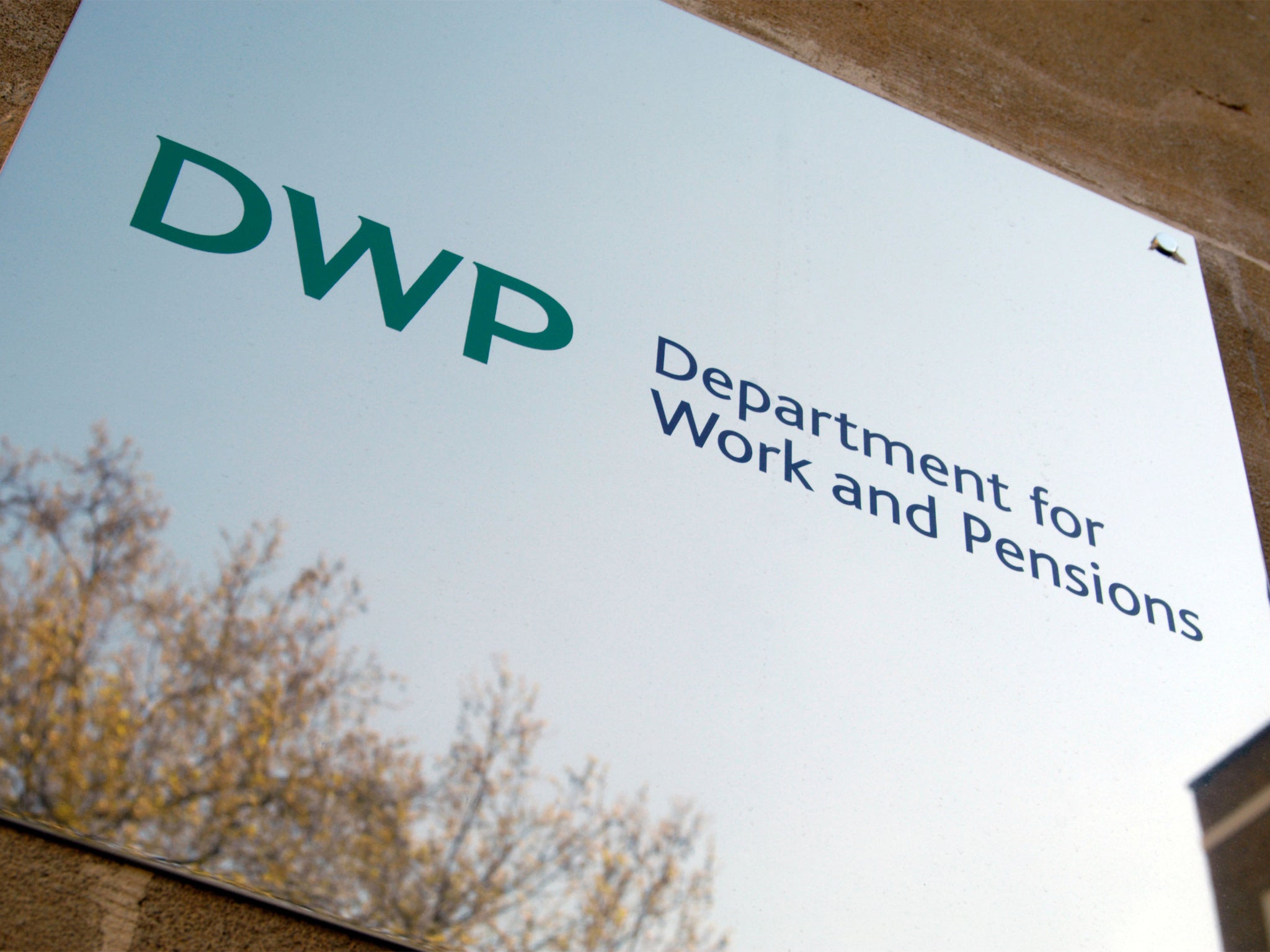DWP admits wrongly putting pressure on disabled people to accept low benefit offers
Legal challenge argued the practice was ‘unfair, unlawful and discriminatory’

The government has admitted it put disabled benefit claimants under pressure to accept lower welfare support than they were legally entitled to.
Staff from the Department for Work and Pensions (DWP) had been cold-calling disabled people who had appealed benefits decisions to encourage them to abandon their appeal and accept inadequate offers, evidence gathered by lawyers showed.
Lawyers say the department had continued to call claimants despite them making it clear that they had representatives who should be contacted first, and had failed to inform them of their appeal rights.
On Monday, the day before the practice was due to be challenged in the High Court, the DWP conceded and agreed to amend its guidance and settle the claim.
The disability benefits claimant who brought the challenge, a woman known only as K, has spent more than a year trying to persuade the DWP to change what she and her lawyers argued was an unlawful practice.
K, who suffers from a severe form of bipolar disorder, made a claim for personal independence payment (PIP) and was initially refused in 2017. She applied again in 2019 and was awarded only a small amount.
Following an unsuccessful internal review, K began a tribunal appeal because she was told by her GP and support workers that she was entitled to the highest levels of PIP.
After her appeal process had started, the DWP called without warning from a withheld number and pressured her into accepting a bit more than they had offered before, but not the full entitlement.
They did not call K’s mother despite her being named as her representative on the DWP paperwork.
K said the DWP told her she had an hour to consider the offer and that “tribunals are not very nice to go to”, which dissuaded her from going through with the appeal, so she accepted the offer.
“I felt really anxious, and this got worse as I couldn’t get hold of my mum to ask what I should do as my mum helps me with my finances,” she said.
“The DWP called me back before I could speak to my mum, so I just accepted the offer as I didn’t know what else to do.
“I felt awful after the call, really panicked, anxious and upset. I felt like I had been pressured into making the wrong decision. I obsessed about the call for weeks. I was paranoid that I was being targeted by the DWP, and again I tried to take my own life.”
K later saw a newspaper article reporting that other disabled people had experienced the same thing. She resolved to take action and instructed the Public Law Project (PLP) to help her challenge the practice.
Her claim argued it was “unfair, unlawful and discriminatory”, citing “confusing” guidance documents and a “lack of clarity” about the importance of contacting formal representatives to discuss awards.
Evidence gathered on K’s behalf from a range of individuals and NGOs shows that claimants felt pressure to accept new offers after receiving a phone call, were regularly not told about their appeal rights and were not given an opportunity to discuss any offer with representatives.
The hearing was scheduled for Tuesday, but the DWP conceded on Monday and agreed to rewrite its policies and guidance and retrain its officials working in this area.
Following the DWP’s decision to concede, K said: “The practice of phoning people in this way just isn’t right. It’s not just about the cold-calling; it’s the whole way they treat you on the call.
“It feels as though the DWP has been picking on extremely vulnerable people and using the fear of going to a tribunal or losing an award to pressure people into accepting less than they should be getting.”
Three-quarters of PIP claimants who appeal decisions from the DWP are successful, according to government figures.
Sara Lomri, K’s solicitor at Public Law Project (PLP), said: “The welfare benefits system is one of the ways the state protects and promotes our wellbeing. People who meet the criteria for benefits are entitled to welfare benefits by law.
“Unfortunately, a practice has developed over the last few years at the DWP whereby benefits decision-makers have been putting pressure on eligible disabled benefits claimants to accept less than their statutory entitlement.
“Judicial review is always a last resort, and this case shows why there must be an accessible legal route for people to hold public authorities to account.”
Anela Anwar, the chief executive of the Zacchaeus 2000 Trust, which has supported the case, said the charity had been “extremely concerned” about the DWP’s practice when contacting disabled people who have appealed a negative benefits decision to offer a revised award.
“Based on our clients’ experiences, we know these approaches are not always in accordance with the DWP’s own guidance and can result in disabled people accepting a lower rate of benefit than they are entitled to,” she said.
A DWP spokesperson said: “Our overarching aim is that claimants are paid the correct amount of benefit at the earliest opportunity.
“We contact people if we can revise a decision and increase their benefits award as a result of new evidence becoming available after their appeal was lodged – and they always have the option to continue with their appeal or challenge a revised decision.
“We have addressed PLP’s concerns by improving our guidance on telephone calls so options and appeal rights are always clearly set out, as well as stopping making contact when a tribunal is imminent, and we are pleased they have withdrawn their case.”
Join our commenting forum
Join thought-provoking conversations, follow other Independent readers and see their replies
Comments
Bookmark popover
Removed from bookmarks